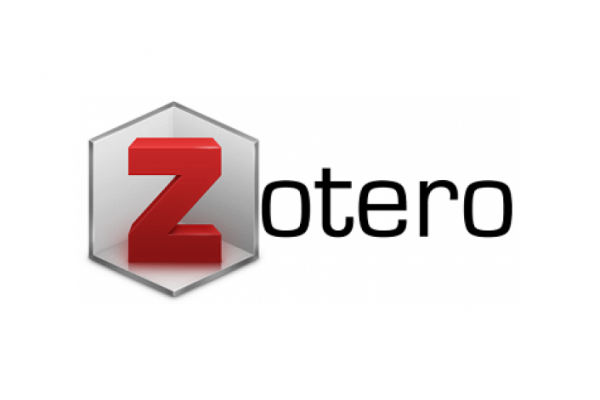The Development of Qaw?idul Il?l Teaching Materials by an Inductive Approach
Abstract
Keywords
Full Text:
PDFArticle Metrics
Abstract view : 337 times | PDF view : 281 timesReferences
Abidin, Y. (2012). Pembelajaran Bahasa Berbasis Pendidikan Karakter. Bandung: Refika Aditama.
Ahmad, S. Z. @ H., Ghani, S. A., Hashim, U. H. H., Shaadon, Z., & Mustapa, N. S. (2012). The Purpose of Reading Arabic Text and the Problems Faced: A Preliminary Survey at the Faculty of Islamic Studies. Procedia - Social and Behavioral Sciences, 59, 18–25. https://doi.org/10.1016/j.sbspro.2012.09.240
Arikunto, S. (2010). Prosedur Penelitian Suatu Pendekatan Praktik. Jakarta: PT RINEKA CIPTA.
Arsanti, M. (2018). Pengembangan Bahan Ajar Mata Kuliah Penulisan Kreatif Bermuatan Nilai-Nilai Pendidikan Karakter Religius bagi Mahasiswa Prodi PBSI , FKIP , UNISSULA. Jurnal Kredo, 1(2), 71–90. https://doi.org/10.24176/kredo.v1i2.2107
Bahri, S., Prasasti Abrar, A. I., & Angriani, A. D. (2017). Perbandingan Metode Deduktif Dengan Induktif Terhadap Hasil Belajar Matematika Ditinjau Dari Motivasi Belajar Siswa. MaPan, 5(2), 201–215. https://doi.org/10.24252/mapan.v5n2a4
Bako, F. M., Masrurah, F., Tuli, F., & Arifah, D. (2018). Pengawasan dan Evaluasi Program Bahasa Arab di Pondok Pesantren. Arabi : Journal of Arabic Studies, 3(1), Article 1. https://doi.org/10.24865/ajas.v3i1.72
Borg, W.R. & Gall, M. (2003). Educational research: an introduction (fourth). New York: Longman.
Brown, D. (2008). Prinsip Pembelajaran Dan Pengajaran Bahasa. Jakarta: Person Education.
Effendy, A. F. (2009). Metodologi Pengajaran Bahasa Arab. Malang: Misykat.
Ernawati, I. (2017). Uji Kelayakan Media Pembelajaran Interaktif Pada Mata Pelajaran Administrasi Server. Elinvo (Electronics, Informatics, and Vocational Education), 2(2), 204–210. https://doi.org/10.21831/elinvo.v2i2.17315
Haryadi. (2014). Dasar-dasar Membaca: Bermuatan Kreativitas Berpikir dan Nilai-Nilai Pendidikan Karakter. Semarang: UNNES PRES.
Hasmam, A., & Rahimi, N. M. (2010). Types of text in books for learning Arabic as a second language: A document analysis. Procedia - Social and Behavioral Sciences, 7(2), 50–56. https://doi.org/10.1016/j.sbspro.2010.10.008
Idrus, L. (2019). Evaluasi Dalam Proses Pembelajaran. Jurnal Manajemen Pendidikan Islam “ADAARA”, 9(2), 920. https://jurnal.iain-bone.ac.id/index.php/adara/article/view/427
Isnainiyah. (2019). Pengembangan Kitab Matan Al-Jurumiyah Dengan Pendekatan Induktif Untuk Siswi Madrasah Diniyah Nurul Ulum. Prociding Seminar Nasional bahasa Arab Mahasiswa III, 1–20. http://prosiding.arab-um.com/index.php/semnasbama/article/view/422
Jannah, M. (2021). Pentingnya Proses Evaluasi dalam Pembelajaran di Sekolah Dasar. EDUCATOR (Directory of Elementary Education Journal), 2(2), 49–63. https://e-journal.iaingorontalo.ac.id/index.php/educator
Kesuma, M., & Reni Puspita Sari. (2020). Pengembangan Modul Sharaf Dengan Pendekatan Deduktif Di Pondok Modern Madinah Lampung. Studi Arab, 11(1), 27–36. https://doi.org/10.35891/sa.v11i1.1944
Kholisoh, L. N. (2018). Sudahkah Evaluasi Kemahiran Berbicara Bahasa Arab Pada Tingkat Dasar Dilakukan? Jurnal Penelitian Bahasa, Sastra, Dan Budaya Arab, 1(1), 73–87. https://doi.org/Https://doi.org/https://10.17509/alsuniyat.v1i1.24200
Magdalena, I., Fauzi, H. N., Putri, R., & Tangerang, U. M. (2020). Pentingnya Evaluasi dalam Pembelajaran dan Akibat Memanipulasinya. Bintang, 2(2), 244–257. https://doi.org/10.36088/bintang.v2i2.986
Munawwir, A. W. (1997). Kamus Al- Munawwir Arab- Indonesia. Surabaya: Pustaka Progresif.
Rambe, P., Islam, U., Sultan, N., & Kasim, S. (2015). Analisis Kemampuan Mahasiswa Pendidikan Bahasa Arab dalam Memahami Bentuk-Bentuk Kosakata, Kutubkhanah, 18(2), 97–111. http://dx.doi.org/10.24014/kutubkhanah.v18i2.1475
Rankin, E. ., & Culhane, J. (1969). Compare cloze and multiple choice comprehension test scores. Journal of Reading, 13, 193–198. https://www.jstor.org/stable/40017267
Sehri, A. (2014). Metode Pengajaran Nahwu Dalam Pengajaran Bahasa Arab. Jurnal Hunafa, 7, 47–60. https://doi.org/10.24239/jsi.v7i1.108.47-60
Shobirin, M. S. (2020). Proses Morfologis Pembentukan Jamak Nomina dalam Bahasa Arab. Journal of Educationand Management Studies, 3(1), 19–24. https://ojs.unwaha.ac.id/index.php/joems/article/view/289
Sitepu. (2012). Penulisan Buku Teks Pelajaran. Bandung: PT. Remaja Rosdakarya.
Sudjana, N. (2010). Penilaian Hasil Proses Belajar Mengajar. Bandung: PT Remaja Rosdakarya.
Suryani, Nunuk ; Setiawan, Achmad; Putria, A. (2019). Media Pembelajaran Inovatif dan Pengembanganya. Bandung: PT Remaja Rosdakarya.
Syamsiar. (2020). Penerapan Model Induktif Kata-Bergambar terhadap Penguasaan Kosa Kata Bahasa Arab Peserta Didik. Jurnal Pendais, 2(2), 161–178. https://uit.e-journal.id/JPAIs/article/view/951
Syihabuddin. (2019). Tes Dan Evaluasi Pengajaran Bahasa. Bandung: UPI PRESS.
Taufik. (2016). “Istiratijiyat Al-Ta’alum Al-Mubasyar Lada Al-Thalabah Al-Mutakhashishin Fi Al-Lughah Al-‘Arabiyah Bi Istikhdam Barnamaj ATLAS.Ti,.” Arabiyat: Jurnal Pendidikan Bahasa Arab Dan Kebahasaaraban, 3(2). 267-281. https://journal.uinjkt.ac.id/index.php/arabiyat/article/view/3333
Widoyoko, E. P. (2009). Evaluasi Program Pembelajaran (. Yogyakarta: Pustaka Belajar.
Zubaidi, A., Junanah, J., & Shodiq, M. J. (2021). Pengembangan Media Pembelajaran Mahârah Al-Kalâm Berbasis Media Sosial Menggunakan Aplikasi Tiktok. Arabi : Journal of Arabic Studies, 6(1), 119. https://doi.org/10.24865/ajas.v6i1.341
Zuhairini dkk. (2006). Sejarah Pendidikan Islam. Jakarta: PT Bumi Aksara.
DOI: https://doi.org/10.23971/altarib.v10i2.4666
Refbacks
- There are currently no refbacks.
Copyright (c) 2022 Isnainiyah, Mohamad Zaka Alfarisi, Asep Sopian

This work is licensed under a Creative Commons Attribution-ShareAlike 4.0 International License.
Indexed By:
Tool:




Al-Ta'rib : Jurnal Ilmiah Program Studi Pendidikan Bahasa Arab IAIN Palangka Raya is published by Arabic Education Departement (PBA), the Faculty of Education and Teacher Training (FTIK),� State Islamic Institut (IAIN) of Palangka Raya in partnership with IMLA (Association of Arabic Lecturers).
Editor and Administration Address:
Arabic Education Departement (PBA), the Faculty of Education and Teacher Training (FTIK),� State Islamic Institut (IAIN) of Palangka Raya, Jalan G. Obos Komplek Islamic Centre Palangka Raya, Kalimantan Tengah, Indonesia, Postal Code 73111.Email: [email protected]/[email protected], Website: http://e-journal.iain-palangkaraya.ac.id/index.php/tarib
This work is licensed under a Creative Commons Attribution-ShareAlike 4.0 International License.



















